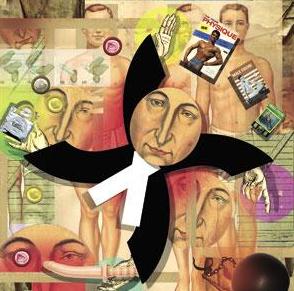
Micheal Vonn, of the BC Civil Liberties Association, called the ruling a "huge setback."
Condom use is not enough.
In a blow to the HIV community, the test in criminal cases of nondisclosure will now be “realistic possibility of transmission of HIV,” a clarification of the more vague “significant risk” test.
The unanimous decision also opens the door to prosecutions when the accused had a low viral load.
The court ruled that where both a condom was used and viral load is low, the accused should be acquitted. And it ruled that evolutions in science or treatment could change the math.
The ruling stands in contrast to a series of lower court cases in which either low viral load or consistent condom use barred prosecution.
The decision, written by Chief Justice Beverley McLachlin, also rules that the math changes depending on the sex act. However, the court did not rule on prosecutions for oral sex.
“Drawing the line between criminal and non-criminal misconduct at a realistic possibility of transmission arguably strikes an appropriate balance between the complainant’s interest in autonomy and equality and the need to prevent over-extension of criminal sanctions,” McLachlin writes.
The cases, known as Mabior and DC, are prosecutions of HIV-positive people who did not tell their sexual partners their HIV status before having sex. The complainants did not become HIV-positive in either case.
With respect to Mabior, the decisions overturn the Manitoba Court of Appeal in part, entering convictions for aggravated sexual assault related to three complainants and an acquittal with respect to a fourth. The court upheld the acquittal of DC from the Quebec Court of Appeal.
The decision won’t have any practical effect on the accused in Mabior, because he was deported to South Sudan in February.
However, for HIV-positive people living in Canada, the stakes remain high.
In 1998, the court ruled that failure to disclose your HIV status before having sex could constitute assault. It set the threshold as whether the act posed a “significant risk” to sexual partners.
Parliament has never weighed in, leaving provincial prosecutors to decide how frequently to lay charges in such cases. In Ontario, where the bulk of these charges have been filed, the Ministry of the Attorney General toyed with introducing rules that would limit prosecutions, but those rules never materialized.
Since 1998, charges have escalated. Now, HIV-positive people are often charged with aggravated sexual assault — which carries a maximum penalty of life in prison and can land those who are convicted on the sex offender registry.
The decision also clears the way for the Ontario Court of Appeal, which put off hearing appeals of two criminal cases pending today’s decision from the Supreme Court.
The new rules will apply to HIV-positive people whose cases have not yet gone to trial and to cases that are under appeal, like those before the Ontario Court of Appeal. HIV-positive people who are already serving time for HIV nondisclosure cannot have these new rules applied retroactively.
The cases set off a firestorm among people living with HIV and organizations that support them. A coalition of AIDS groups quickly released a statement calling the decision a “cold endorsement of AIDS-phobia.”
“In practice, today’s ruling means that people risk being criminally prosecuted even in cases where they exercised responsibility and took precautions, such as using condoms – which are 100 percent effective when used properly,” reads the statement, which was endorsed by the Canadian AIDS Society, the Canadian HIV/AIDS Legal Network and the Black Coalition for AIDS Prevention and other groups.
Jay Koornstra is the director of Bruce House, a charity that provides housing to people living with HIV in Ottawa. He says that the Supreme Court failed to consider “the realities of HIV today.”
“Everyone has a responsibility to protect themselves and others. I don’t think that this advances that approach to health.”
He also worries that the decision will give HIV-negative people the impression that they can simply assume partners are HIV-negative until being told otherwise — a poor strategy for protecting their health.
Tim McCaskell, another long-time AIDS activist, says that the law is out of step, requiring disclosure in cases where HIV transmission is unlikely.
“Maybe we need two sets of safer sex guidelines. One to keep yourself and others healthy, and another to keep you out of jail,” he says.
Since HIV nondisclosure was criminalized, defence lawyers have looked for ways to limit the law’s scope. The introduction of evidence of low viral load was one such way, especially in cases where condoms hadn’t been used. But that’s going to be more difficult now, says Micheal Vonn of the BC Civil Liberties Association.
“The advances that we were making at the lower courts have been cut off at the knees,” she says. “It’s a huge setback. Massive.”
Meanwhile, AIDS service providers have been advising clients to use condoms in order to avoid the risk of prosecution — but with today’s decision, that may no longer be enough.
“You can imagine the horror show that service providers are waking up to today,” she says. “There’s so little concern [in the judgment] about what is going to happen to HIV-positive people, many of whom have been very responsible about condom use.”
McCaskell also laments that the court missed an opportunity to clarify the law for all types of sex, rather than just vaginal sex between a man and a woman.
“The first email I got was, ‘Do I have to use a condom when I give a blowjob?’ The answer is, ‘We don’t know.’”
Or, as Koornstra says, “The grey area is still grey.”
McCaskell will now turn his attention to winning prosecutorial guidelines, which would come from the provincial Ministry of the Attorney General.
Cécile Kazatchkine, of the Canadian HIV/AIDS Legal Network, goes a step further.
“We are calling on police and crown prosecutors not to prosecute people when a condom is used or when there is a low viral load, because we don’t believe it’s in the public interest,” Kazatchkine says. “Just because the Supreme Court has given the courts the power to prosecute these cases, it doesn’t mean that they should.”
Failing that, HIV-positive people and their allies could lobby the federal government to change the law, Vonn points out. But given the Conservative government, “it seems unlikely at the current juncture that there would be any taste for this,” she says.
While the cases will have wide-ranging implications for HIV-positive people and those who love them, McCaskell called the acquittal of DC a “glitter in the gloom.”
“In terms of that personal story, this is good. This woman has been dragged through hell and back, and now she’s been acquitted. But she was acquitted on a technicality,” McCaskell says.
Kazatchkine agrees.
“Justice has been done in that particular case.”


 Why you can trust Xtra
Why you can trust Xtra


